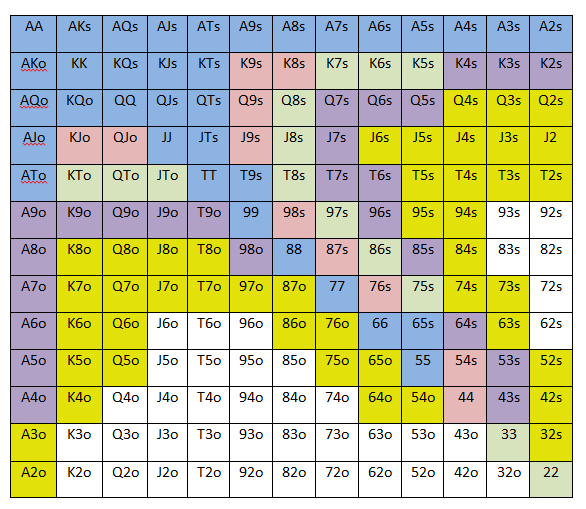Maximizing your Poker Profit : A Compete Guide For Beginners
You should not be looking to learn fancy plays or advanced strategies to throw your opponents off their game when you are just starting in poker. All you need is to stick with a few fundamental principles, and you will surely be better than most of your rivals.
“The best way to make money in the lowest stakes is to let other players’ throw it at you.“
When trying to learn the game, it is a good idea to start at lower stakes to give yourself more room for playing. This way, you will not risk a significant amount of money and will be able to see the game flow while playing against weaker players and building your experience.
Instead of trying to outplay everyone or run crazy bluffs, follow these simple tips, and you will be surprised by the results in these games.
Proper hand selection is the King
Finding the right games and table selecting is one of the essential skills when you move up the stakes for increasing your win rate, but when you are just starting your journey in low stakes, you will easily find weak opponents in most of the tables. So how should you take advantage of it?
That’s easy. You just need to stick to the proper preflop strategy and select the right hands to play. The good news is that it is easy to learn, and you can make it even more straightforward by getting poker cheat sheet with opening ranges.
Playing too many hands is one of the most common mistakes, and by picking good hands preflop, you will avoid many problems postflop, as well. At low stakes, your opponents will be playing random hands, so all you need to do is let them make those mistakes and avoid it yourself. Poker is a math game, and you should have a grasp on poker probability and poker odds (888Poker has an excellent guide on poker probability which is worth a read).
Think about your opponent’s cards
There are many good poker tips on how to win more in poker, but few will help you more than actually figuring out how to put your opponent on a range.
Instead of trying to guess the exact holding of your opponent, put him on a likely range of cards based on his actions, and play against the whole range.
This will help you avoid many emotional decisions and will be a big step toward learning mathematically sound play, which is the essence of poker.
While many argue that it is not important at the beginning, I wholeheartedly disagree – and believe it is one of the vital skills you should be cultivating from the start.
Even though sometimes it might look that players are playing random hands on micro stakes, identifying these tendencies and observing different opponents will help you learn who is who and, most importantly, how to adjust.
Even many experienced players are not able to do this right and leave a lot of money at the table, so the good news is that you can quickly outgrow them. While this will require some practice, these are simple steps that can help you make better decisions from the get-go:
- Start by assigning a specific range preflop based on his position, action, and your observations.
- Reduce his likely holdings based on the actions he takes on the flop, turn, and river.
- Always take into consideration bet sizing, since some players have obvious tells in that department.
If you notice that someone is value betting 2/3rd of the pot most of the time and use ½ pot size bet as a bluff, you can float more hands or even bluff raise that player when facing a smaller sizing. This indicates that your opponent does not play a balanced strategy, and you can easily exploit their ranges when you notice such irregularities.
Even in more common situations where everything seems just normal, stick to thinking in terms of ranges instead of individual hands, and you will be a much better player almost at once.
Learn to fold
Last but not least is learning how to let your hand go. Many players fall in love with their hands and go with it no matter what, which is a very costly habit in the long run.
Even if you have AA preflop, it does not mean you should be betting this hand on every street no matter what comes on the board. Quite the contrary, learning to let go of such hands when needed can drastically increase your win rate and be the backbone of your play.
As the famous saying from Dan Reed goes – “You will show your poker greatness by the hands you fold, not the hands you play.”
This could not be closer to the truth.
If a passive player who’s been folding for hours raises you on the river out of nowhere, you probably should fold even very strong hands. Of course, if you are playing against an utterly aggressive player and face the same situation, you need to call down more often.
That is the beauty of the game. You just have to keep adjusting all the time.
You will do much better if you learn to let go of your marginal strength hands and concentrate on playing sound poker. While these simple tips will not make you the best player in the world, it will surely help you avoid the most common mistakes and move up the latter much faster.



